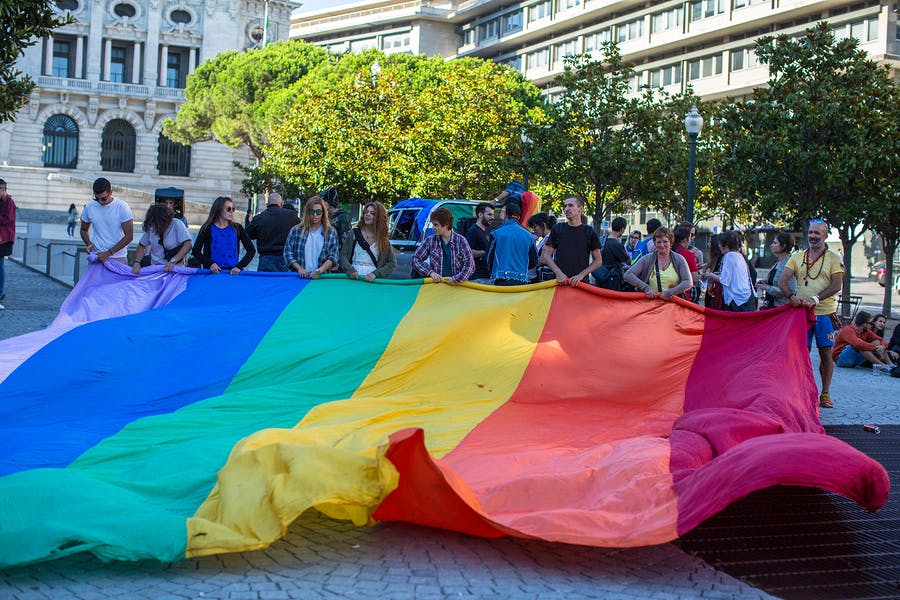The annual celebration of Pride Month in June exists to promote change in attitudes and increase awareness surrounding inclusion today. Pride Month can also serve as a chance to raise awareness of a lack of diversity in the workplace. The issue of LGBTQ rights should be simple both morally and ethically, we know what to do: Treat everyone with equal respect, opportunity, and inclusion.
Unfortunately, that’s not the reality in our places of work. According to a recent TD Bank survey, many LGBTQ Americans still fear workplace discrimination and LGBTQ millennials worry their careers would suffer if their sexual orientation were revealed.
Part of the problem is that what to do can be hindered by the complex problem of how to do it. This is challenging when our biases and unconscious biases combine with existing systems and processes to make doing the right thing extremely hard.
Morals and ethics don’t always move the needle and create change. The bottom line does. The bottom-line benefits of diversity and inclusion are broad and conclusive:
- More money. An MIT study found that diverse teams consistently outperform homogeneous ones. Researchers have found that teams with high levels of inclusion outperform others by a substantial margin.
- More efficiency. An MIT and George Washington study found that diverse offices function more efficiently. Other research shows that cognitively diverse teams, including diversity of thought (which is correlated with different backgrounds) solve problems faster and inclusive teams make better business decisions 87% of the time.
- More innovation. One 2011 survey found that 85% of large global enterprises say diversity is crucial for innovation while a Deloitte report found that when employees feel that their company is diverse and inclusive, their ability to innovate increases by 83%.
- More customer connection. Serving a diverse customer base requires a diverse workforce which has an inherit understanding of that base which can best come from those who understand their needs, wants and desires.
- More job retention. The TD survey found that LGBTQ issues are an important consideration for millennials when choosing an employer. A 2017 study found that supporting specific demographic groups has a direct link to employee retention and engagement.
Having a diverse company is good for your soul and your bottom line. Not all companies make that happen because our biases get in the way.
Inclusivity as critical as diversity
Having a diverse workplace doesn’t make a difference without allowing diversity to flourish. For this, you must foster a culture of inclusivity, from the top of the organization down. Diversity of opinion and thought won’t matter if diverse perspectives are not encouraged. From the boardroom down, companies need to create a culture that is diverse and inclusive.
Do LGBTQ people feel a sense of safety in the workplace, in sharing personal details of their life like to whom they’re married? Many people do not, especially because in many states you can be fired for your sexual orientation or gender identity. Not sharing experiences at work limits employees’ ability to be comfortable sharing experiences and perspectives that make them valuable. Without safety, employees won’t contribute their best work.
Enable teams to contribute their all by fostering inclusivity. LinkedIn’s Global Recruiting Trends 2018 used a metaphor:
“Diversity is being invited to the party, inclusion is being asked to dance, and belonging is dancing like no one’s watching. (It) is the feeling of psychological safety that allows employees to be their best selves at work. Even at the most diverse company, employees will disengage and leave if they don’t feel included and accepted.”
An analysis of over three million survey responses concluded that the strongest driver of engagement is inclusion. The more involved an employee, the more likely they are to be engaged. Workplace relationships, networks, and social systems are what enable the exchange of ideas and solutions between colleagues.
Doing the right thing shouldn’t require any intervention. When it comes to LGBTQ diversity and inclusion, our unconscious biases and ingrained systems hinder us from getting the best workforce. That isn’t just a statement for equal rights and opportunity, it’s also a bad move for our bottom line. And if that perspective is what it takes to do the right thing, so be it.
